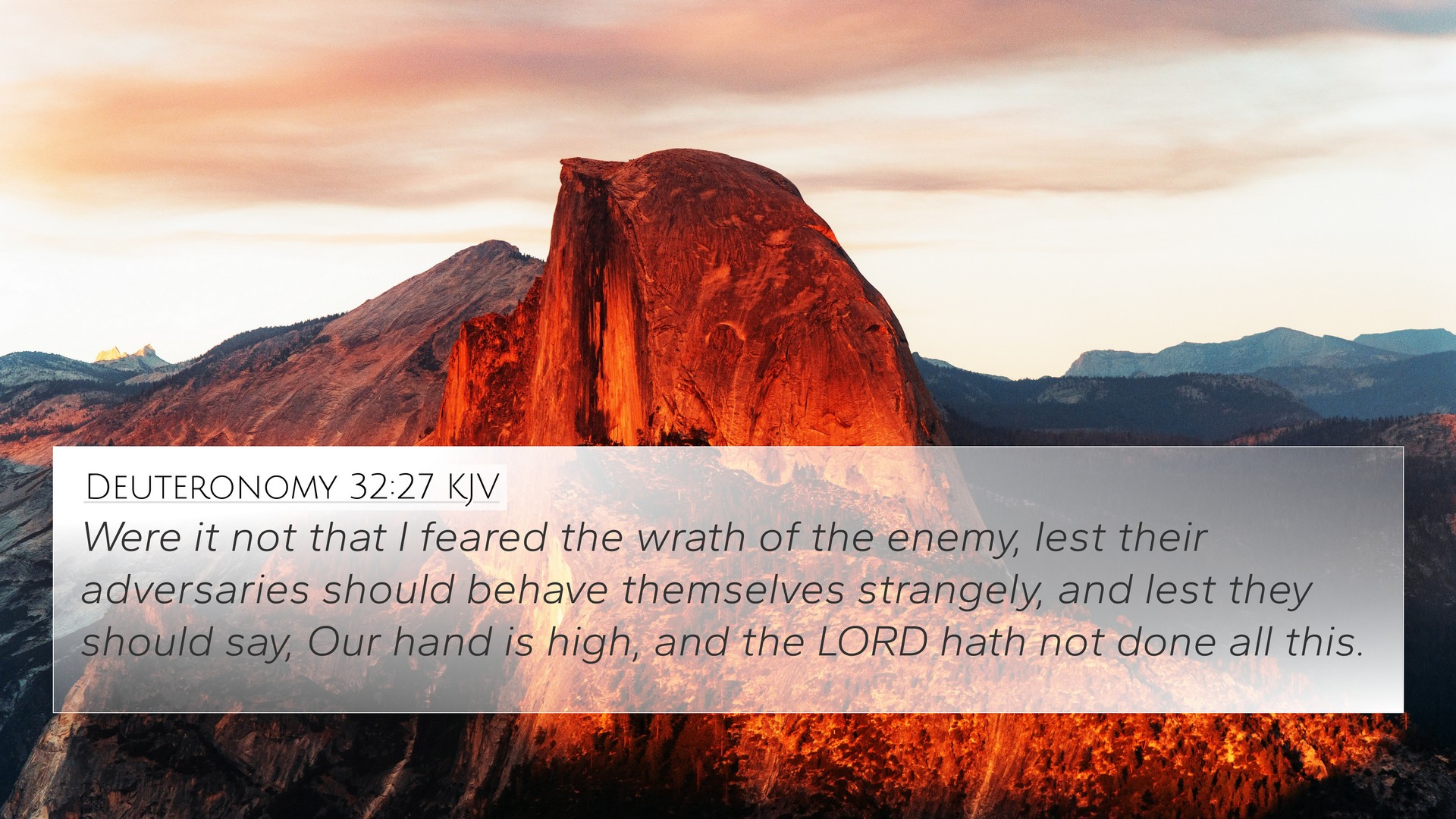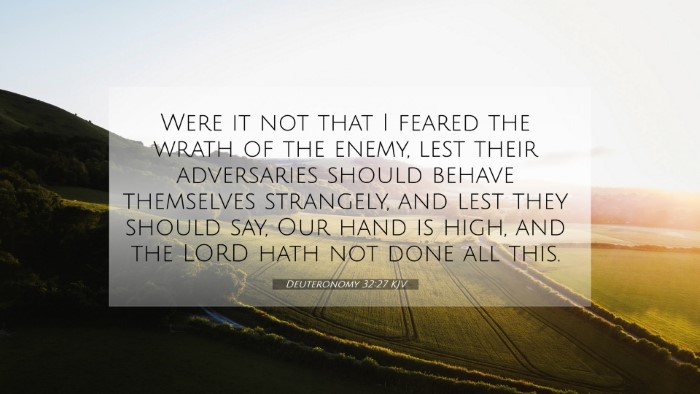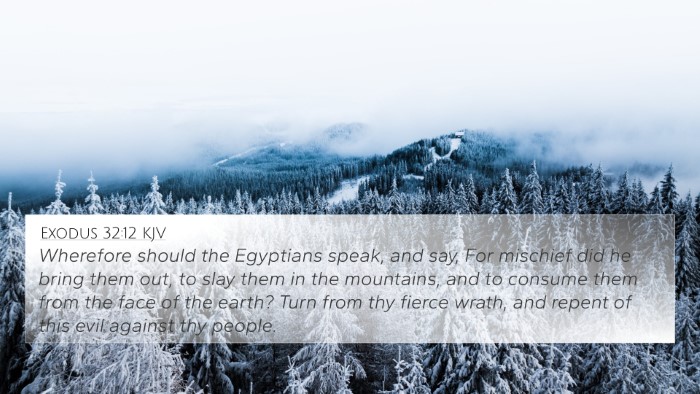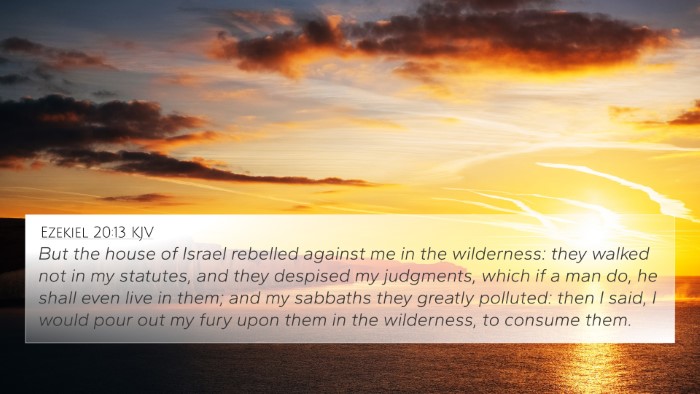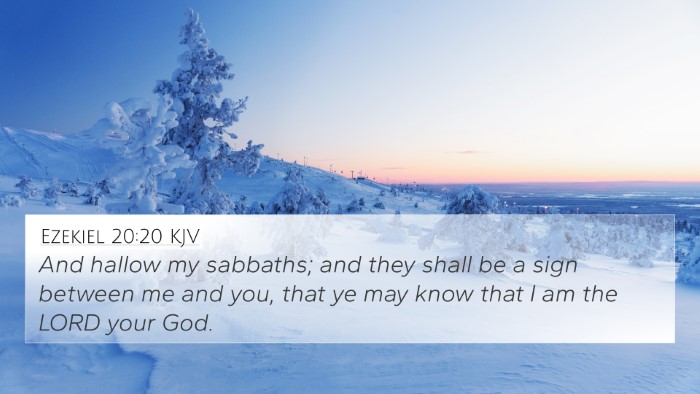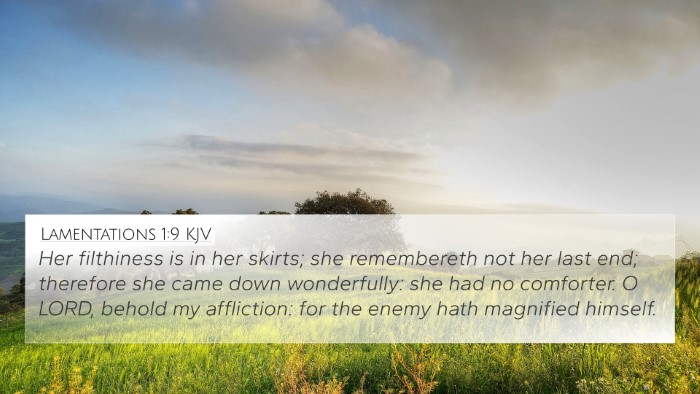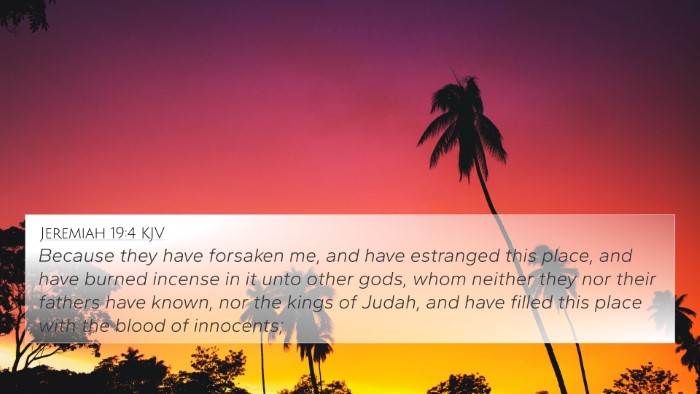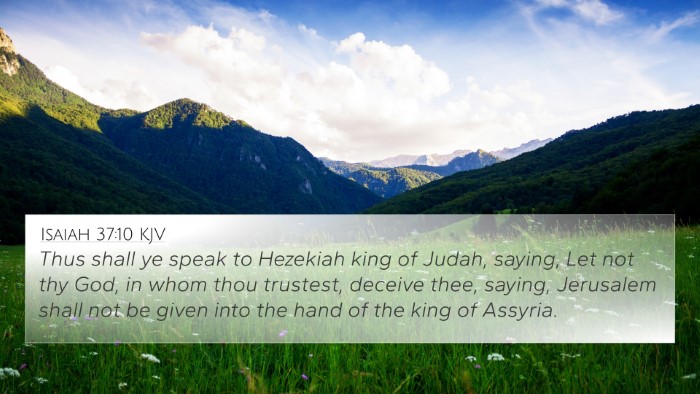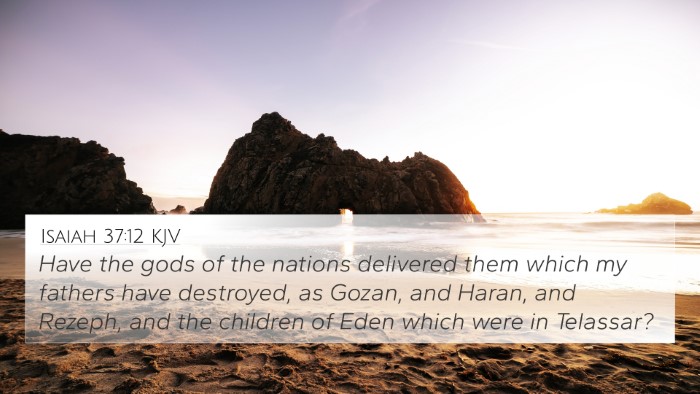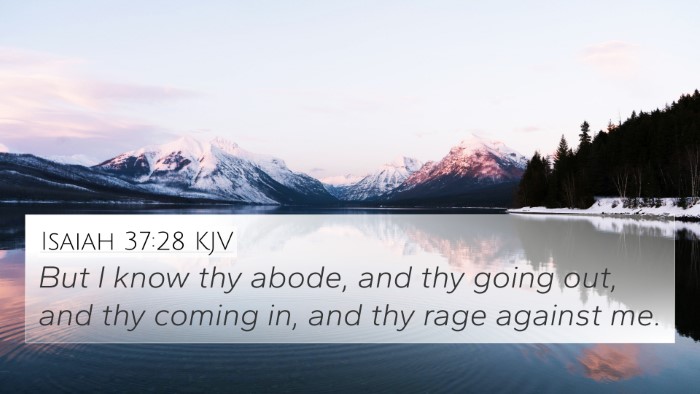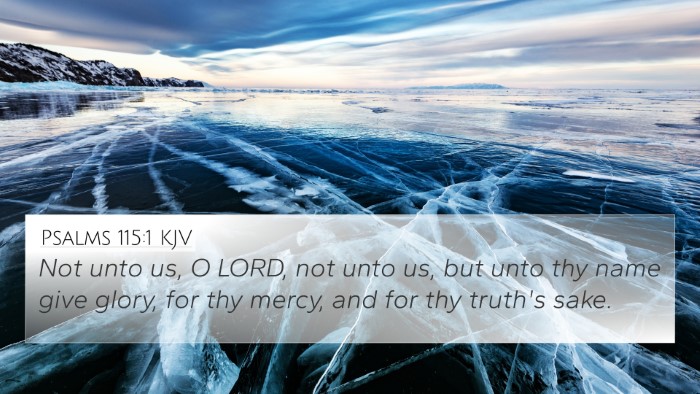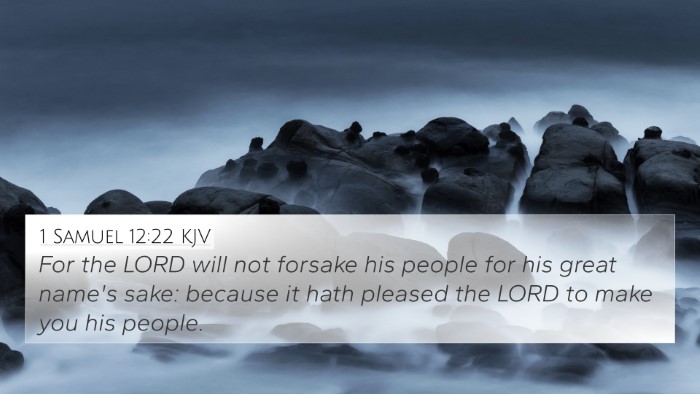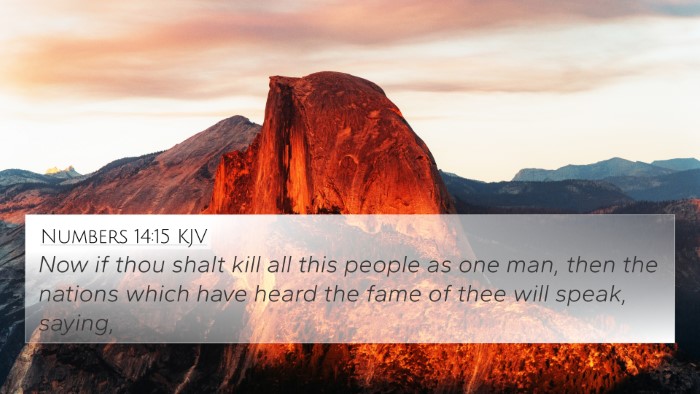Understanding Deuteronomy 32:27
Verse: Deuteronomy 32:27 - "But I feared the wrath of the enemy, lest their adversaries should behave themselves strangely, and lest they should say, Our hand is high, and the Lord hath not done all this."
Summary of Insights
This verse highlights God's contemplation regarding His people's vulnerability to their enemies. It expresses a deep concern about the potential glorification of the adversaries due to the apparent absence of divine intervention. By examining commentaries from Matthew Henry, Albert Barnes, and Adam Clarke, we can gather a deeper understanding of the complexities embedded in this scripture.
Matthew Henry's Commentary
Matthew Henry elucidates that the fear of God is foundational in recognizing our weaknesses before both Him and our adversaries. He points out that if God allowed His people to be overcome, it would grant the enemies an unholy pride and lead to misunderstandings about God's power. This reflects a broader theme of accountability in the divine-human relationship.
Albert Barnes' Commentary
Albert Barnes emphasizes that God's concern is rooted in His desire for His name and reputation among the nations. The fear expressed in the verse is not purely about His people suffering defeat but is also about the perception it creates among surrounding nations regarding God's might and fidelity. If they were to triumph without divine assistance, it would lead to a false narrative about the Lord's impotence.
Adam Clarke's Commentary
Adam Clarke elaborates on the idea of accountability to God, suggesting that the acknowledgment of God's sovereignty is essential to understanding the trials faced by His people. Clarke interprets this verse as a reflection of Israel’s struggle between maintaining faith and facing real threats, urging the faithful to remain steadfast in recognizing God as their ultimate protector.
Cross References
To fully grasp the implications of Deuteronomy 32:27, we can examine a range of cross-referenced verses that enhance our understanding:
- Exodus 14:14: "The Lord shall fight for you, and ye shall hold your peace."
- Psalm 7:16: "His mischief shall return upon his own head, and his violent dealing shall come down upon his own pate."
- Isaiah 54:17: "No weapon that is formed against thee shall prosper."
- Jeremiah 1:19: "And they shall fight against thee; but they shall not prevail against thee; for I am with thee, saith the Lord, to deliver thee."
- Romans 8:31: "What shall we then say to these things? If God be for us, who can be against us?"
- 1 John 4:4: "Ye are of God, little children, and have overcome them: because greater is he that is in you, than he that is in the world."
- Matthew 16:18: "And I say also unto thee, That thou art Peter, and upon this rock I will build my church; and the gates of hell shall not prevail against it."
Thematic Connections
Deuteronomy 32:27 resonates with various themes in the Bible that deal with the nature of God’s protection, the struggle against evil, and the ultimate sovereignty of God over nations and individuals. These themes can be further explored through:
- Divine Protection: How God guards His people from their enemies.
- Accountability: The expectation placed upon humanity to remain faithful amidst adversity.
- God’s Sovereignty: The overarching theme that no power can challenge God's authority.
Exploring Connections Between Verses
Cross-referencing Biblical texts, such as linking Deuteronomy 32:27 with themes found in both the Old and New Testaments, reveals profound insights. For instance, understanding the interplay between Deuteronomy and the New Testament teachings showcases how this verse serves as a reminder of God’s unwavering faithfulness. The concerns of divine reputation in this passage echo in the call to discipleship and the assurance of God’s presence in the New Testament.
Tools for Bible Cross-Referencing
Utilizing tools for Bible cross-referencing can enhance the study experience significantly. Here are some suggestions:
- Bible Concordance: A dictionary of words in the Bible that allows for easy finding of scripture.
- Bible Cross-Reference Guide: Guides that provide related verses for deeper study.
- Bible Cross-Reference System: Established systems for connecting passages throughout scripture.
Conclusion
In conclusion, Deuteronomy 32:27 is more than just a verse; it encapsulates fundamental theological inquiries about protection, divine sovereignty, and human vulnerability. By examining the insights of various public domain commentaries and referencing related scriptures, one can appreciate the richness of this verse within the larger biblical narrative.
